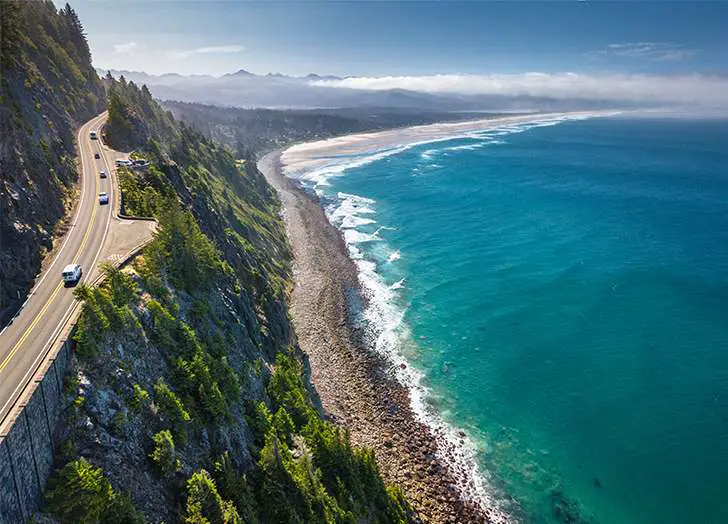If you’re a nature lover and looking to explore the natural beauty of the United States, then Oregon should be on your radar. Located on the west coast, Oregon is renowned for its stunning landscapes and diverse ecosystems. From lush forests to picturesque coastlines, this state has it all. But before you pack your bags and head there, there are a few things you should know. With a steadily growing population and an influx of residents from California, the cost of living in Oregon can be quite high, making off-grid living a challenge. However, for those who can afford it, there are plenty of fertile lands and a mild climate to enjoy. Plus, the state has legal support for off-grid living, with incentives for renewable energy options like solar and wind power. Just make sure you research and comply with local regulations and zoning requirements. With its varying climates, diverse wildlife, and plentiful crops, Oregon truly is a nature lover’s paradise.
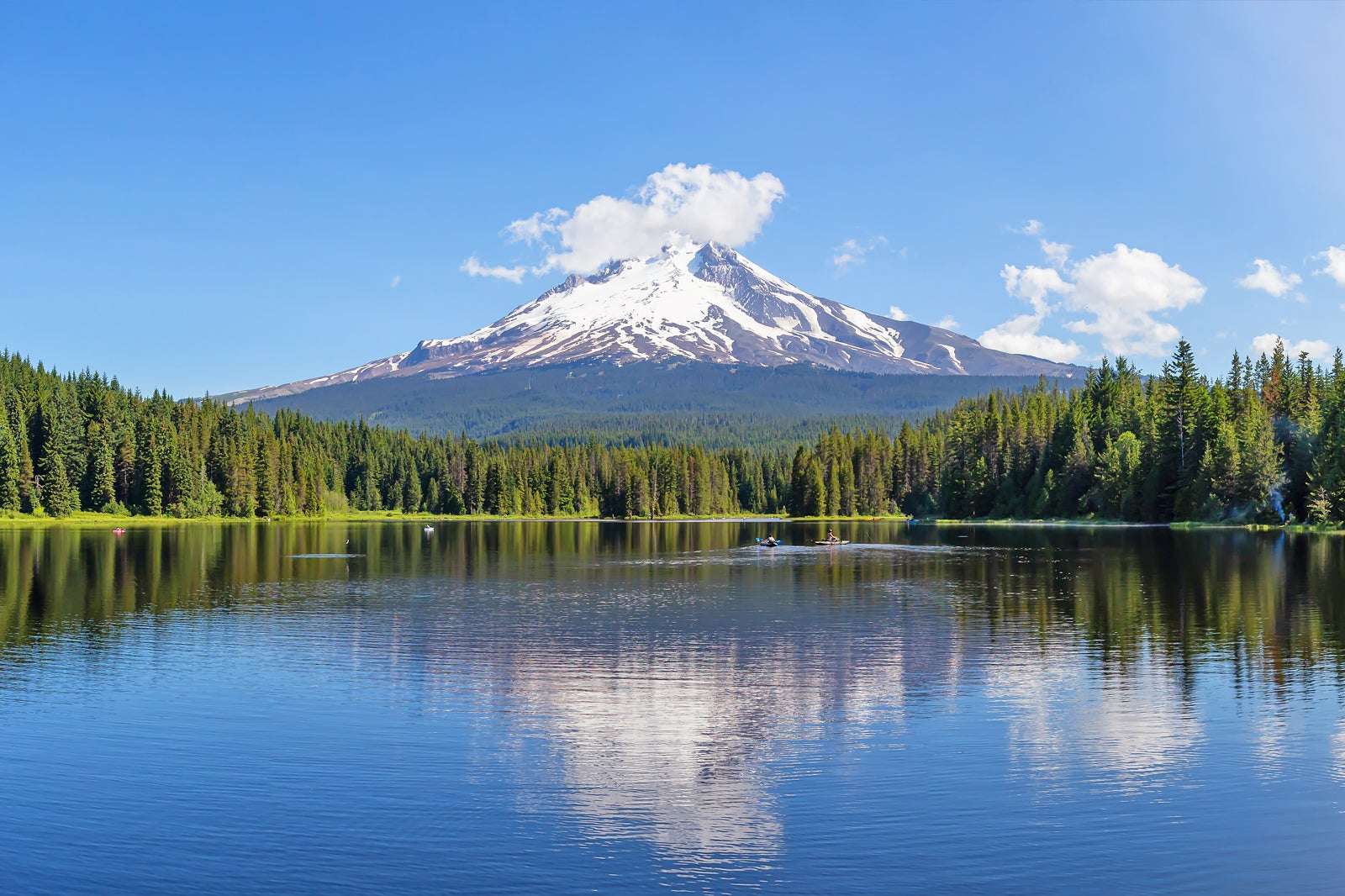
Geography and Climate
Location and Overview
Oregon is located on the west coast of the US and is known for its natural beauty. With its diverse landscapes, from rugged coastlines and lush forests to mountains and deserts, the state offers a wide variety of geographical features to explore and enjoy.
Climates and Weather Patterns
Oregon experiences different climates throughout the state. The western part of the state has a mild, marine-influenced climate with cool, wet winters and mild, dry summers. In contrast, the eastern part of Oregon has a semi-arid to arid climate with hot, dry summers and cold winters. The Willamette Valley, located in the western part of the state, has a temperate climate and is well-suited for agriculture.
Freshwater Availability
Freshwater availability in Oregon is generally good, thanks to its abundant rainfall and numerous rivers and lakes. However, in some semi-arid areas, water availability may be limited, requiring careful water management and conservation efforts.
Off-Grid Living in Oregon
Challenges of Off-Grid Living
Off-grid living in Oregon can be challenging due to several factors. Firstly, the high cost of living, particularly housing costs, can be a barrier for those looking to live off-grid. Property prices have been rising, especially with the influx of people moving from California. Additionally, the unemployment rates in Oregon are above the national average, which can make it difficult for individuals or families to sustain themselves financially while living off-grid.
Legal Support for Off-Grid Living
Oregon has legal support for off-grid living, which provides some reassurance for those wanting to live independently. However, it is important to thoroughly research and understand the local regulations and zoning requirements before embarking on an off-grid lifestyle.
Zoning Laws and Regulations
Zoning laws and regulations play a significant role in off-grid living in Oregon. Different areas may have specific zoning requirements for living off-grid, such as minimum acreage or building codes. It is essential to consult with local authorities and obtain the necessary permits and approvals when establishing an off-grid residence.
Restrictions on Rainwater Harvesting
While Oregon generally has access to ample freshwater resources, there are some restrictions on rainwater harvesting in certain areas. These restrictions aim to protect water supplies and ensure a sustainable water source for both human consumption and ecological needs. It is crucial to check the local regulations regarding rainwater harvesting before implementing such systems.
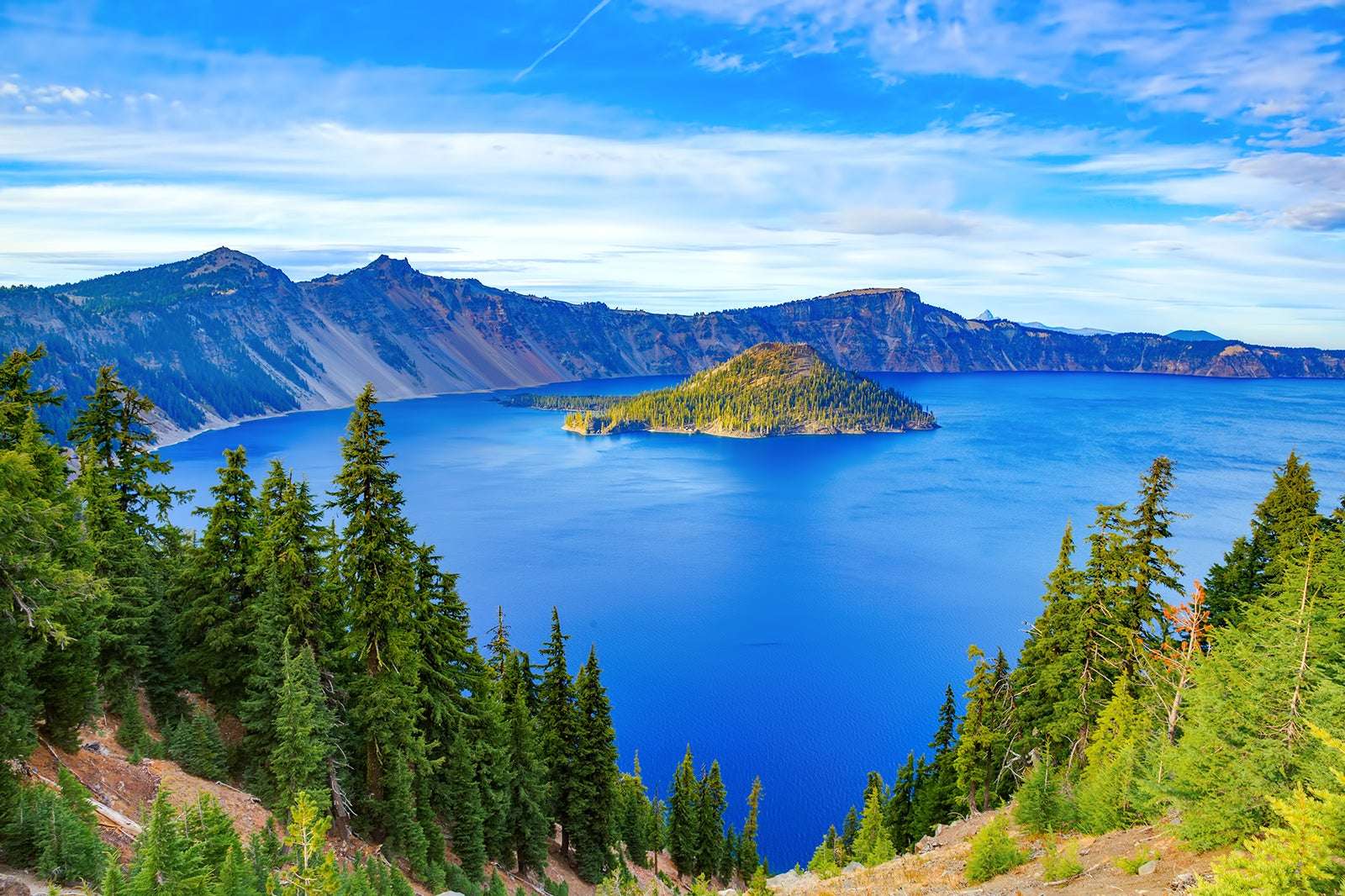
Renewable Energy Options
Solar Power
Solar power is a viable renewable energy option in Oregon due to its relatively sunny climate, especially in the eastern part of the state. Installing solar panels can help off-grid residents generate their electricity while reducing reliance on traditional power sources.
Wind Power
Oregon also offers great potential for harnessing wind power, particularly in coastal and mountainous regions. Utilizing wind turbines can supplement or even replace traditional power sources, making off-grid living more sustainable.
Incentives for Renewable Energy
To encourage the adoption of renewable energy, Oregon provides various incentives and support programs. These incentives may include tax credits, grants, and rebates for installing renewable energy systems in homes and businesses. Taking advantage of these incentives can help offset the initial costs of implementing renewable energy solutions.
Agriculture and Crops
Diverse Range of Crops
Oregon is renowned for its agricultural industry, offering a diverse range of crops. The state’s fertile lands and favorable climate make it ideal for growing various crops, including grains, legumes, fruits, vegetables, and specialty crops.
Vegetables and Fruits
The Willamette Valley, in particular, is well-known for its production of vegetables and fruits. From berries and apples to lettuce and onions, the region’s agricultural richness enables a bountiful harvest of fresh and flavorful produce.
Fertile Lands and Mild Climate
The combination of fertile lands and a mild climate makes Oregon an attractive destination for individuals interested in sustainable and self-sufficient living. The state’s agricultural resources contribute to food security, providing opportunities for off-grid residents to grow their food and reduce reliance on external sources.
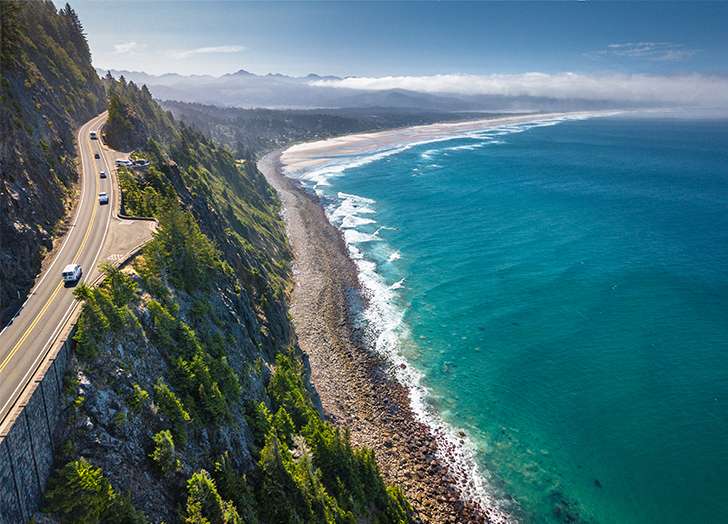
Wildlife in Oregon
Diverse Range of Wildlife
Oregon is home to a diverse range of wildlife, including various species of mammals, birds, fish, and reptiles. From lush forests to open plains and coastal habitats, the state’s diverse landscapes provide habitats for a wide array of wildlife.
Wolves, Bears, and Deer
Some of the iconic wildlife species found in Oregon include wolves, bears, and deer. These majestic creatures roam the state’s forests and mountains, contributing to its ecological diversity and natural beauty.
Fish Species
Oregon’s rivers and lakes are teeming with fish species, providing ample opportunities for fishing enthusiasts. Salmon, trout, and bass are among the commonly sought-after fish, attracting anglers from near and far.
Road Access and Transportation
Good Road Access
Oregon generally boasts good road access, with a well-maintained network of highways and roads connecting its major cities and towns. This accessibility facilitates transportation and provides convenience for both residents and visitors.
Impact of Rain and Snowfall
While road access is typically good, some areas of Oregon may be affected by heavy rain or snowfall, especially in the winter months. These weather conditions can lead to road closures or challenging driving conditions, highlighting the importance of being prepared and staying informed about local weather patterns.
Transportation Costs
Transportation costs might be a consideration for off-grid residents, particularly when it comes to accessing essential services or commuting to nearby towns or cities. Living in remote areas can result in higher transportation costs, including fuel expenses and vehicle maintenance.
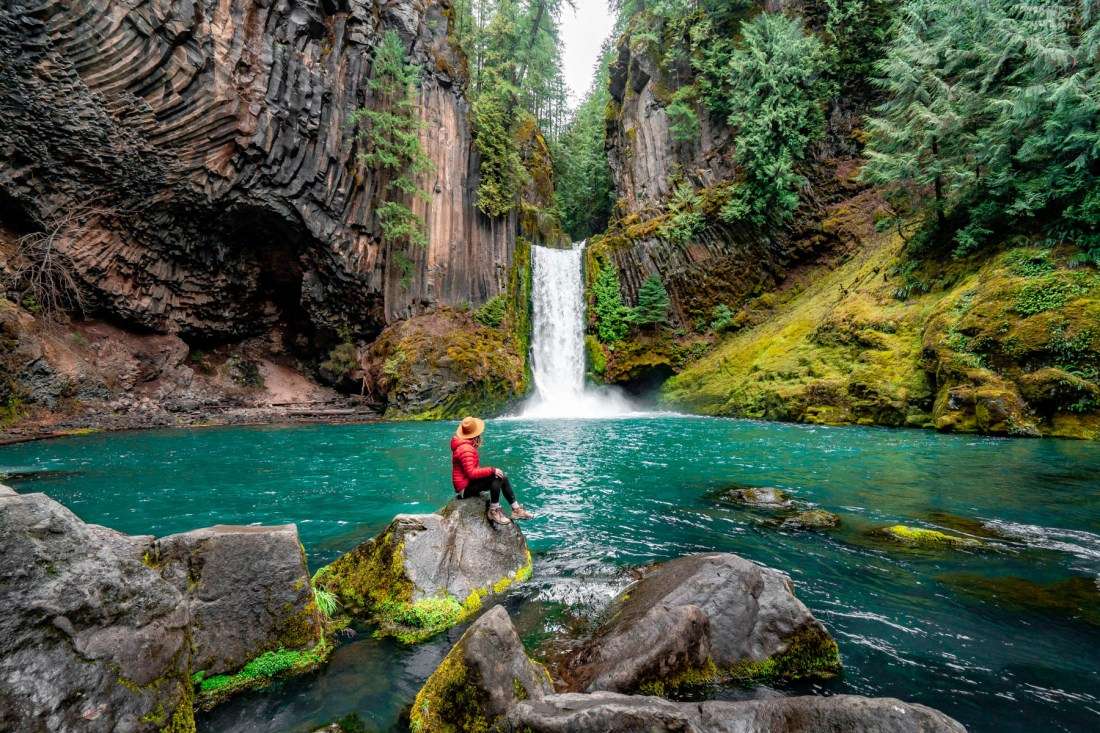
Cost of Living
Higher Than National Average
The cost of living in Oregon is generally higher than the national average. Factors such as housing, utilities, healthcare, and transportation contribute to this higher cost. It is important to account for these expenses when planning for off-grid living in Oregon.
Housing Costs
Housing costs in Oregon, especially in desirable areas, have been steadily increasing. The influx of people from California, in particular, has contributed to rising property prices and rental rates. Affording suitable housing while living off-grid can be a significant financial challenge.
Transportation Costs
Transportation costs, including fuel prices, vehicle maintenance, and insurance, are also higher in Oregon compared to the national average. These expenses need to be considered when budgeting for off-grid living, particularly in areas with limited access to public transportation.
Job Opportunities
Unemployment Rates
Oregon’s unemployment rates are above the national average, which poses a challenge for off-grid residents seeking employment opportunities. The competitive job market requires individuals to carefully consider their financial plans and explore alternative income-generating options.
Opportunities in Agriculture and Tourism
Despite the higher unemployment rates, there are job opportunities in industries like agriculture and tourism. Oregon’s agricultural sector offers employment possibilities in farming, food processing, and related industries. Additionally, the state’s natural beauty attracts tourists, creating opportunities in hospitality and outdoor recreation.
Crime Rate in Oregon
Below National Average
Oregon’s crime rate is generally below the national average, making it a relatively safe place to live. However, it is worth noting that crime rates can vary across different regions within the state. Researching specific areas and understanding local crime statistics can help individuals make informed decisions about where to live off-grid.
Variations in Crime Rates
As with any state, crime rates in Oregon can vary significantly depending on the specific locality. Certain urban areas may have higher crime rates compared to rural or remote areas. Understanding these variations is crucial for off-grid residents to make informed choices about personal safety and security.
Researching and Complying with Regulations
Importance of Research
When considering off-grid living in Oregon, conducting thorough research is crucial. Understanding the local regulations, zoning requirements, and potential challenges will help individuals plan effectively and comply with legal obligations.
Local Regulations and Zoning Requirements
Each area in Oregon may have its specific regulations and zoning requirements for off-grid living. It is essential to engage with local authorities, consult zoning maps, and become familiar with the specific rules that apply to the chosen location. By doing so, off-grid residents can ensure they are within legal boundaries and avoid unnecessary complications or penalties.

